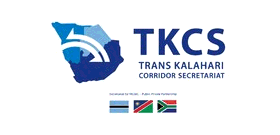 Trans-Kalahari Railway Set to Transform Southern Africa’s Trade and Transport Landscape
Trans-Kalahari Railway Set to Transform Southern Africa’s Trade and Transport Landscape
The Trans-Kalahari Railway (TKR) is emerging as a game-changing infrastructure project for Southern Africa, promising to reshape regional trade routes and bolster economic integration. This ambitious railway, stretching between 1,600 and 1,900 kilometers, will connect Botswana’s Mmamabula coalfields directly to Namibia’s Atlantic port of Walvis Bay. By doing so, it offers Botswana a vital alternative export corridor, reducing its current heavy reliance on South African and Mozambican ports, while simultaneously enhancing Namibia’s role as a key logistics hub.
Originally conceived primarily as a coal export line, the TKR has since evolved into a multi-commodity development corridor. This shift reflects changing global market demands and a strategic vision to diversify the railway’s cargo beyond coal. The corridor is now planned to transport a broad range of goods including copper, iron ore, manganese, lithium, soda ash, cement, fuel, grain, and containers. This diversification is designed to ensure the railway’s long-term sustainability and resilience against market fluctuations.
Currently, the project is in the feasibility study phase, with the Canadian consultancy CPCS appointed in early 2025 to conduct a comprehensive assessment. This study, expected to conclude by April 2026, is examining critical factors such as traffic demand, technical design, route options, financing models, and environmental impacts. Four potential route alignments are under consideration, with a strong recommendation to adopt the Cape gauge to maintain compatibility with existing regional rail networks.
Governance of the TKR is structured to ensure close collaboration between Botswana and Namibia. A dedicated Project Management Office operates with coordinators in both countries, supported by quarterly meetings of Joint Technical and Steering Committees, and biannual sessions of a Joint Ministerial Committee led by the respective Ministers of Transport. This robust institutional framework underpins the project’s cross-border nature and facilitates coordinated decision-making.
Financially, the TKR is projected to require an investment of approximately USD 11 to 12 billion. The funding strategy centers on a Public-Private Partnership (PPP) model, combining equity and debt financing. Support is expected from development banks, export credit agencies, and potential off-take agreements with mining companies. This approach aims to balance risk and attract private sector participation while leveraging public sector backing.
Strategically, the TKR aligns closely with continental initiatives such as the African Integrated Railway Network Master Plan 2033 and the African Union’s Agenda 2063. It integrates priority rail corridors that connect Walvis Bay, Windhoek, Gaborone, and Johannesburg, thereby enhancing regional connectivity and trade facilitation. The railway is anticipated to significantly reduce transport costs by shifting bulk freight from road to rail, stimulate mining and industrial activity, lower road maintenance expenses, and contribute to environmental goals by cutting CO₂ emissions.
Beyond transport, the TKR is envisioned as a catalyst for broader economic development. It is expected to generate employment during both construction and operation phases, unlock mineral wealth, and foster regional integration under the African Continental Free Trade Area (AfCFTA). The project’s repositioning as a developmental corridor underscores its potential to stimulate diverse sectors and support sustainable growth across Southern Africa.
Looking ahead, investor presentations facilitated by the African Union Development Agency (AUDA-NEPAD) are scheduled for late October 2025 in Luanda, Angola. These events will provide a platform to showcase the project’s financial viability, sustainability alignment, and strategic benefits to potential investors and stakeholders, marking a critical step toward securing the necessary funding and advancing the TKR toward construction, which is envisaged to begin in mid-2027.
